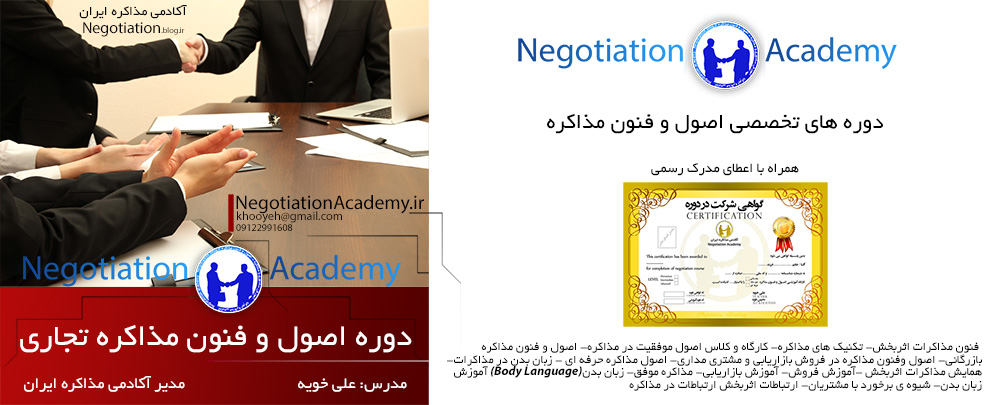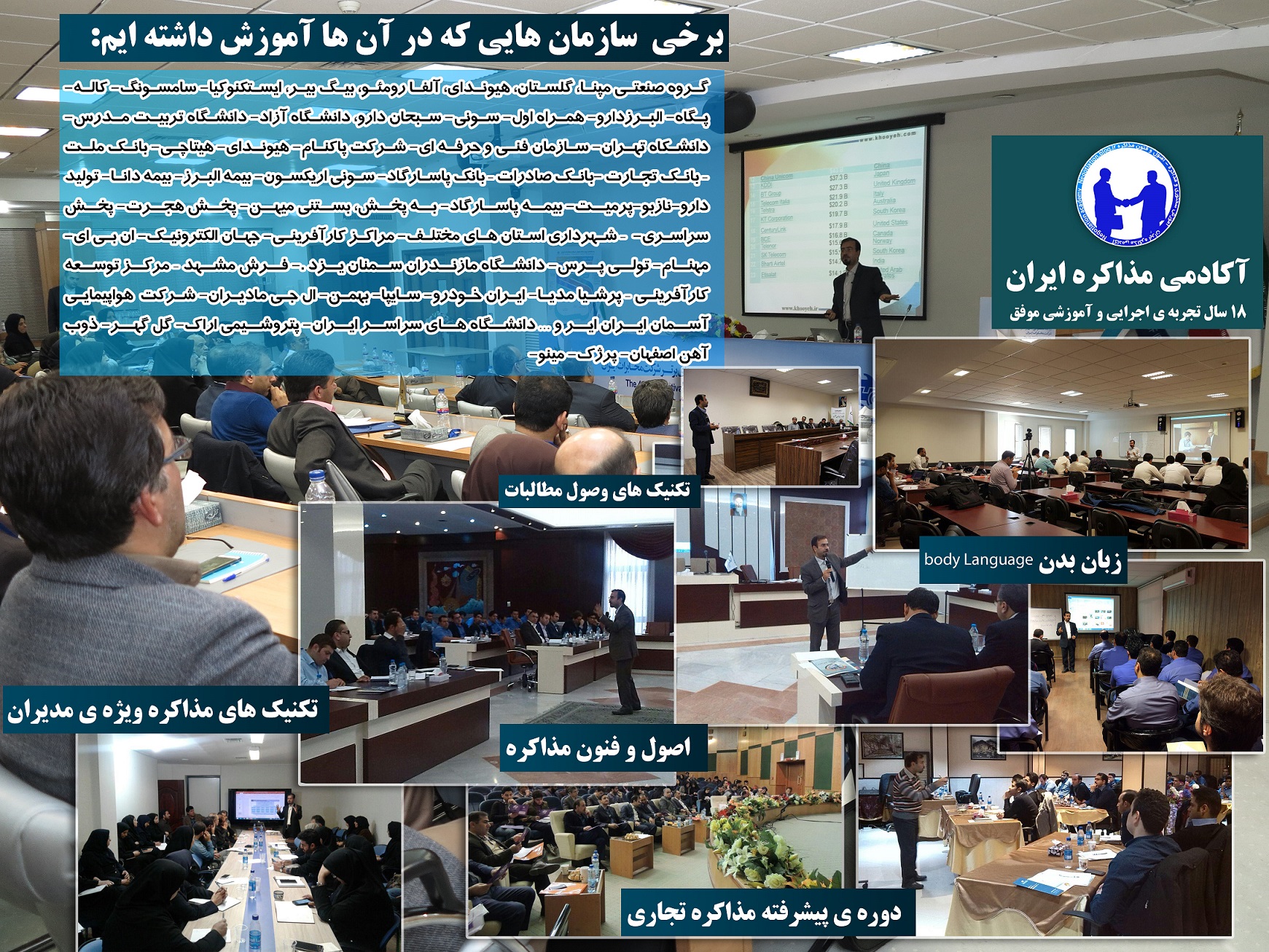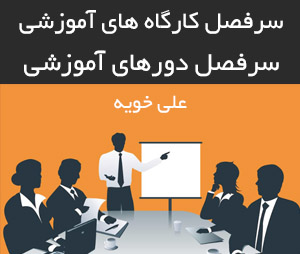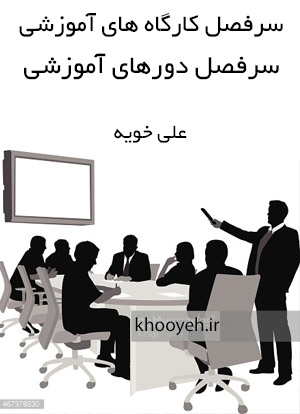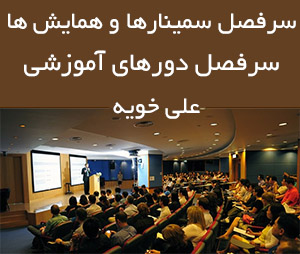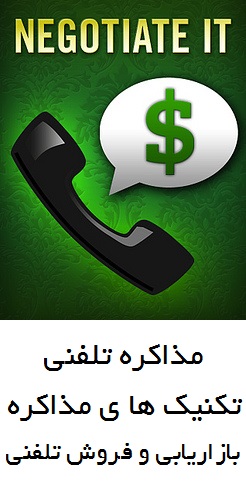دوره اصول فنون واستراتژِ های مذاکرات و مدیریت ارتباطات به زبان انگلیسی
دوره اصول فنون واستراتژِ های مذاکرات و مدیریت ارتباطات به زبان انگلیسی
|
دوره اصول فنون واستراتژِ های مذاکرات و مدیریت ارتباطات به زبان انگلیسی اصول و فنون مذاکرات بین المللی به دو زبان انگلیسی و فارسی بر اساس سیلابسهای مدرسه مذاکره در دانشگاه هاروارد به صورت علمی وعملی با کارگاه های کاربردی توسط خانم فهیمه احمدی و علی خویه http://negotiationschool.persianblog.ir/ 09122991608 09372991608 مدرسان دانشگاه، مولفان و مترجمان کتب تخصصی و مرجع مدیریت بازاریابی فروش تبلیغات ارتباطات ارایه بیش از 5000 نفر ساعت آموزش حرفه ای کاربردی عملی در شرکت های مختلف و برندهای معتبر عضو انجمن های ملی و بین المللی، کارشناس برخی از برنامه های صدا و سیما |
the principles, strategies, and tactics of effective negotiation and professional relationship management.
Based on Negotiation at Harvard School Sylabs by: Ali Khooyeh & Fahimeh Ahmadi University lecturers, authors and translators specialized reference books on management, marketing, sales, advertising, communications
|
سرفصل های دوره:
|
تکنیک های مذاکره با افراد |
Techniques for negotiating with People Negotiators negotiate difficult situations and nightmares
Introduction to Negotiation Nature of Negotiation Efficiency of Negotiators II. Distributive Negotiations III. Integrative Negotiation – The Harvard Method IV. Dealing with Obstacles and Complicating Factors
Nonverbal Communication and Lie Detection Rationality and Cognition Cross-cultural Negotiation Multiparty Negotiation |
|
مذاکره به زبان انگلیسی |
|
|
فنون مذاکره با مشتریان بین المللی |
|
|
فنون نامه نگاری و مذاکره بین المللی |
|
|
زبان بدن بین المللی |
|
|
انواع مذاکره و نقش های مذاکره کنندگان |
|
|
فرایند مذاکره حرفه ای |
|
|
ویژگی های مذاکره کنندگان حرفه ای بین المللی |
|
|
دام ها فریب ها و حیله های مذاکره کنندگان بین المللی |
|
|
تکنیک های حرفه ای شروع مذاکره بین المللی |
|
|
جلسات حرفه ای بین المللی |
|
|
تکنیک های مدیریت قراردادهای بین المللی |
|
|
تکنیک ها و روش های متقاعد سازی در عرصه بین الملل |
|
|
روش های چانه زنی بین المللی تکنیک های چانه زنی حرفه ای مدیریت مذاکرات بین المللی استراتژی ها و تاکتیک های مذاکره و مدیریت ارتباطات حرفه ای مذاکره در شرایط سخت و کابوس های مذاکره کنندگان
|
WHAT THIS CLASS CAN DO FOR YOU. It will help develop your skills and sharpen your performance as a negotiator. You will learn techniques, processes, strategies, and what generally constitutes effective negotiation behavior. If open to the possibility, it will also reveal to you a good deal about you as a negotiator. This self-knowing is important because you (your history, personality, character, attitudes, psyche, and values) are fully in play whenever you negotiate. Change and growth happen in this course. You may discover new ways of thinking and behaving that previously you did not think possible. You will also learn about the perspectives, motives, and behavior of other negotiators
You will examine a sampling of inter-disciplinary body of research and analysis that is negotiation science, get experience through practice, subject that practice to internal and outside criticism, and reflect on what you have learned. Theory. Practice. Feedback. Reflection. Again and again. And again. And yet again. That's the semester in a nutshell
This course will develop your understanding of the principles, strategies, and tactics of effective negotiation and professional relationship management. You will also increase awareness and understanding of ethical principles and stakeholder considerations that influence the choices offered and made in transactions and relationships.
You will learn to identify and assess the variables in negotiations, develop sound negotiation planning techniques, develop an understanding of various strategies and tactics to use as you ethically resolve conflicts, transactional and interpersonal differences. Learn how to use that knowledge to execute effective dispute resolutions, and improved competence to manage professional relationships.
The course methodology is highly participative and utilizes class discussion, assigned readings, and simulations in one-on-one, fishbowl, and group situations. Tools for effectively planning for negotiations are reviewed and implemented. Students will work with other class members, in and outside of class, to plan group negotiations.
Students will be able to…
Assess the impact of factors including: specific issues in question, different stakeholder positions, interests, relationships, timing, environment, and group dynamics.
Use an integrated process for strategically planning for, conducting, and debriefing individual and group negotiations.
Develop and execute effective strategies and tactics for different situations that commonly arise in interpersonal and transactional negotiations.
Employ communication, problem solving, and influence techniques appropriate to a given situation.
Identify the differences between distributive and integrative situations and develop appropriate resolution strategies.

